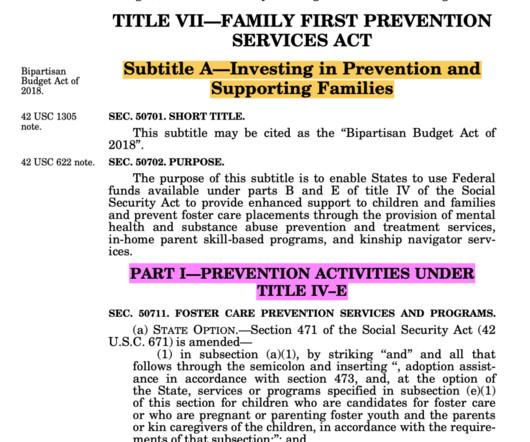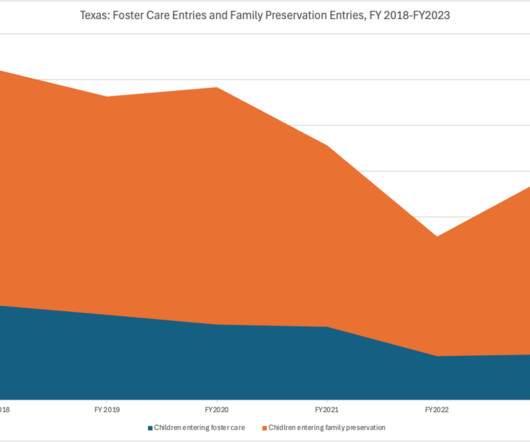The fundamental misconception at the heart of the Family First Act
Child Welfare Monitor
SEPTEMBER 9, 2024
It expanded the allowable uses of Title IV-E funding, formerly used to pay only for foster care, to include what the Act called “Prevention Services,” meaning services to prevent foster care. States had other sources of federal reimbursement for these programs, such as Title IV-B, the Social Services Block Grant, and TANF.












Let's personalize your content